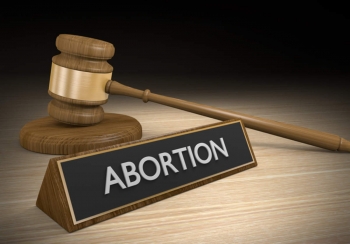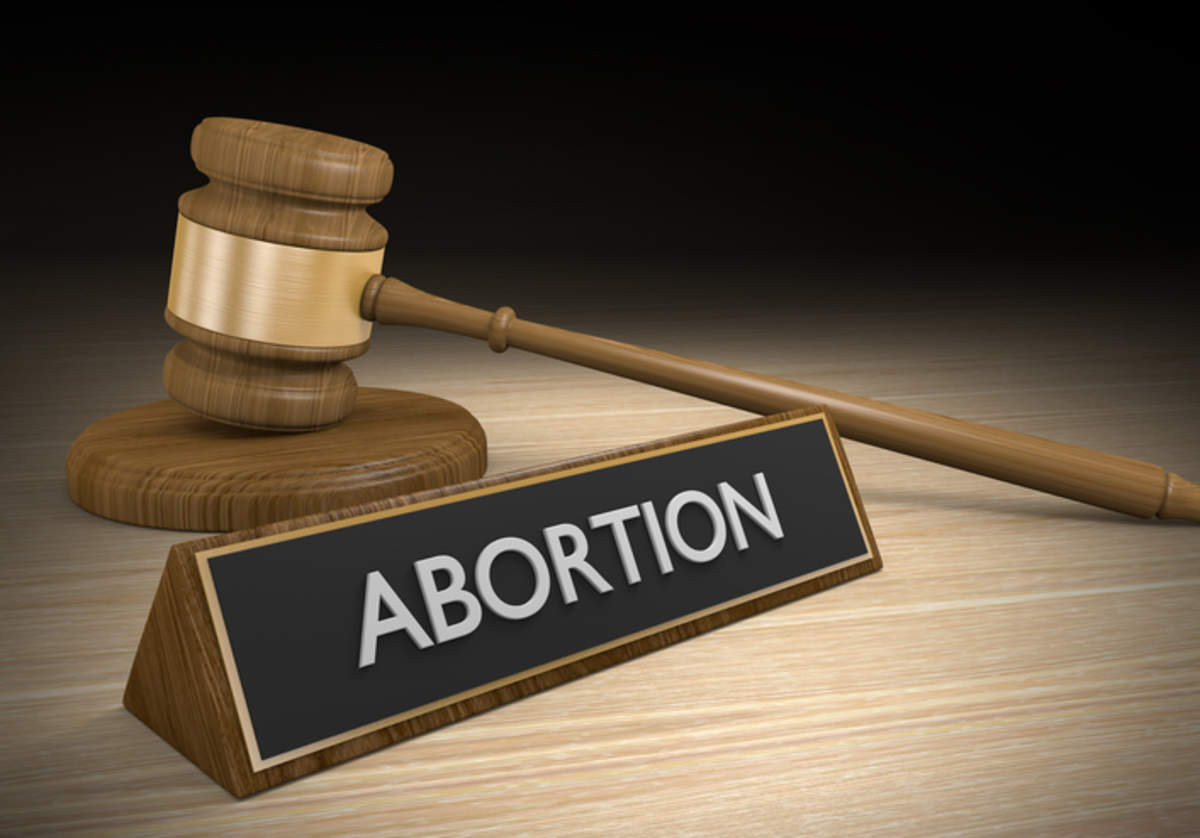
.jpg) Little Sister Leelamma
Little Sister Leelamma

The Centre Government has notified the coming into force of the Medical Termination of Pregnancy (Amendment) Act, 2021 with effect from 24th September 2021. The Amendment drastically modifies the existing law to extend the gestational ceiling limit of termination of pregnancy from 20 weeks to 24 weeks in respect of certain categories of women to be prescribed in the Rules, thus making it easier for such women to safely and legally terminate an unwanted or rather undesired pregnancy.
The categories of women eligible for termination of pregnancy upto 24 weeks has been specified by the Central Government as per MTP (Amendment) Rules 2021, notified on October 12, 2021. The eligible categories include survivors of sexual assault, rape or incest; minors; change of marital status arising from widowhood, divorce; women with major physical disabilities; mentally ill women. The other eligible situation would be when the foetal malformation has a substantial risk of being incompatible with life. Women with pregnancy in humanitarian settings or disaster or emergency situations as may be declared by the Government is also recognized as an eligible category.
The amendment not only derecognizes the rights of the unborn up to 24 weeks of pregnancy, but also the viability of the foetus, the period from which the foetus is capable of living outside the womb. Medical literature undisputedly discloses that viability can also occur even at 24 weeks of pregnancy.
Indian law does not recognize abortion at will. Access to abortion is never regarded as absolute, rather only a ‘qualified right’. Our MTP Act 1971 was largely modeled on the UK Abortion Act, 1967 providing only a limited right to abortion. Termination of pregnancy was never recognized as a normal recourse for expecting mothers in India. However, today, it is being considered as an important facet of the privacy and reproductive health of the woman and its choice forms part of her personal liberty, autonomy, self-determination and bodily integrity.
In the face of the high incidence of unsafe abortions, any legislative measure to liberalize the Abortion law in India should be careful as it may trigger legal and ethical debates which become rather difficult to be answered. The Amendment, in addition to raising the gestational ceiling limit, also recognizes abortion even after 24 weeks for specific foetal abnormalities as diagnosed by a Medical Board.
As per the amended provisions, the woman will require only one physician’s opinion instead of two or more as earlier required under the MTP Act for termination of pregnancy up to 20 weeks of gestation. The opinion of two registered medical practitioners will be necessary only for termination of pregnancy of 20-24 weeks of gestation, permitted for categories of women to be defined in the MTP Rules.
Why the Amendment
MTP law that allows abortion under a broad range of circumstances is generally perceived as a conservative legislation. It allowed healthcare providers rather than a woman seeking abortion to have the final word on abortion and made a woman dependent on her healthcare providers. This seems to be the reason behind the MTP (Amendment) Act, 2021 incorporating a paradigm shift in the approach of the Indian abortion law moving slowly from healthcare providers to woman as such.
The object of the Amendment seems to ensure safety and well-being of women. But the larger question for debate is what about the rights of the ‘ensouled’, as the foetus is ensouled at conception, the moment at which a human being gains soul. Thus embryos have souls and it must be treated as a person from the moment of its conception.
The Amendment also protects the privacy of the woman and envisages that the name and other particulars of the woman whose pregnancy has been terminated shall not be revealed, except to a person authorized by the law currently in force. Its contravention is punishable with imprisonment up to one year or fine or both. The Amendment replaces the ex
The Amendment extends abortion care to unmarried women under protection of privacy and aims at ensuring privacy for women seeking abortion and thus venturing to safeguard the reproductive rights of the woman. The changes in the abortion law may thus create a space for the financial exploitation of women seeking abortion. A worrying area in relation to the Amendment is that while it also recognizes the need of unmarried women to seek abortion, it does not lay down legal standards and protocols for its option. Constitution of the Medical Board has been made a statutory mandate and this responsibility is placed on the States and Union Territories.
Motherhood as the norm
It is well settled that Motherhood is the norm and abortion is the exception. Motherhood is the most cherished and sanctified institution. In the current social climate, it is part of life and personal liberty of a woman. The personhood of a woman as mother is her acclaim of individuality essentially valued as liberty of her life.
UDHR mandates that motherhood and child are entitled for special care. The Constitution of India and the Convention on Rights of Child reaffirms it. The reproductive rights of woman would include her entitlement to carry a pregnancy to its full term, to give birth and to subsequently raise children.
Ethical questions
The extension of the gestational age as per the Amendment will no doubt engender ethical debates. The National Commission for Women in its recommendations made in 2013 had recommended that abortion be allowed up to 24 weeks, keeping in view that modern medical technology can detect some foetal anomalies only after the 20th week. Second-trimester abortions are mostly the result of sex determination. For its misuse, what is required is the stronger enforcement of the Pre-Natal Diagnostic Techniques Act, 1994, a central legislation which prohibits the use of medical technology for sex determination.
The Amendment gives little respect for the rights of the unborn and it is only intended to monopolize the rights of women to improved access to abortion and control over their sexuality, fertility and reproduction. It may be said that the changes made in the scenario of abortion care are more women-centric, than need centric.
Judicial Approaches
A survey of the decisions rendered by the Supreme Court in the recent past on abortion law would indicate a consistent approach that the court had adopted by giving a purposive interpretation in tune with imminent necessity rather than liberal interpretation of the provisions in Sec.5 of the MTP Act by permitting medical termination of pregnancy beyond the gestational ceiling limit specified in Sec.3(2) of the MTP Act.
The cases under the consideration of the court were mostly those in which the continuance of pregnancy involved grave injury to the mental health of the pregnant woman or where there was substantial risk that if the child were born, it would suffer from such physical or mental abnormality as to be seriously handicapped. Such an approach could be discerned in the decisions of the Supreme court in Sonali Kiran Gaikwad (2017), Meera Santosh Pal (2017), Tapasya Umesh Pisal (2018), Mamta Verma (2018), Sarmishta Chakrabortty (2018).
Texas Heartbeat Act 2021
In 2019, several States in the US passed laws either effectively banning abortion or drastically restricting abortion access, marking a clear legislative departure from the 1973 US Supreme Court ruling in Roe v. Wade declaring that abortion was legal. Alabama State’s abortion law passed in 2019 was interdicted by the Court as it violated right of an individual to privacy and to make choices central to personal dignity and autonomy. Alabama State law on abortion allows exceptions only if the mother’s life is seriously at risk or the foetus has a fatal complication, but did not allow permissible exceptions to be extended to cover cases seeking abortion on grounds of rape or incest.
Under the new statutory regime, Physicians violating the abortion law could be sentenced to undergo imprisonment for life. Five States in the US, namely, Georgia, Ohio, Kentucky, Mississippi and Louisiana have now passed Bills prohibiting abortion after a gestational limit of six weeks, thus establishing a clear indication of changed outlook towards reproductive choice right in the United States.
The recent unusual and unprecedented legislative scheme introduced by the Texas Heartbeat Act, 2021 which became effective from September 2021 imposed a prohibition on abortions as early as six weeks into pregnancy. The new Act makes it unlawful for physicians to perform abortions if they detect cardiac activity in an embryo or fail to perform a test to detect such activity. It allows ‘any person’ to bring a civil suit against violation of the regulation for a minimum of USD 10000 as statutory damages.
The US Supreme Court by a majority has refused stay of operation of the Act. Thus the new legislation as part of its novel feature delegated enforcement of the prohibition to the populace at large, instead of State actors. India’s MTP Amendment Act needs deliberation and public debate in the light of the changing global trends and abortion practices.
Potentiality of human life
Under our constitutional theme, the woman’s right to make reproductive choice is undoubtedly recognized as a facet of her ‘personal liberty’ under Article 21 of the Constitution of India, thus reflecting a right-based approach. However, when logically viewed, reproductive rights of a woman include her entitlement to carry a pregnancy to its full term, to give birth and subsequently to raise children. It may have to be pointed out that in the case of pregnant women, there is a ‘compelling state interest’ in protecting the life of the prospective child, the failure of which would amount to infringement of the rights of the unborn to be born.
The potentiality of human life grows in substantiality as the woman approaches term and, at such point during pregnancy, it becomes ‘compelling state interest’ in preserving the life of the unborn. Through the Amendment, India will now line up with those liberalized and abortion-friendly countries that permit abortion procedures after 20 weeks like Canada, Singapore, US (excluding few States that totally prohibit or restrict abortion after 6 weeks), China, Netherlands, North Korea and Vietnam.
Not a lighter exercise
Abortion care should not be seen as a field for lighter exercise, merely because there is scope for enhancing the upper gestational limit with the passage of time and advancement of medical technology for safe abortion. The law should recognize the sanctity of life and ensure the right of everyone including that of the unborn to live. A child should not suffer merely because its mother is not ready to carry or its parents are not ready to be parents.
Law should be embedded on the principles of life, liberty and pursuit of happiness and permit abortions only in the most wanting situations, not decided merely on the basis of woman’s choice or partner’s wish or physician’s opinion, instead be dealt with separately and in a way that enquires into why such pregnancies are considered unwanted. Such a course requires the participation of all stakeholders and accepting the golden principle of potentiality of human life of the unborn. The legal regime, governmental measures and the approach of the judiciary in this arena should promote social and community values, striking an equitable balance between rights of the unborn and the reproductive choices.
(Dr. Pauly Mathew Muricken is a prominent lawyer, an acclaimed writer and a distinguished academician based in Kochi)